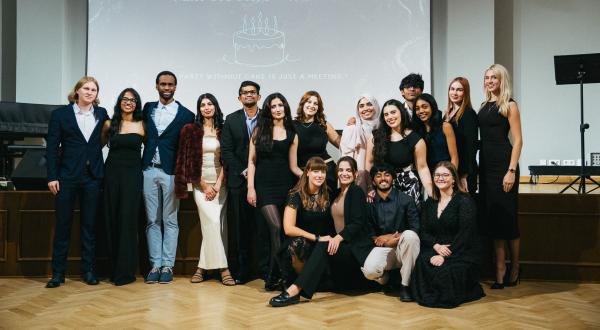RSU develops web based intervention model for student support
The possibility to render effective psychological support to students through e-intervention or web-based intervention programmes has rapidly developed and institutions of higher education all around the globe develop e-intervention tools aimed at providing support throughout the study process. For example, a university may offer its students e-intervention solutions, e.g. as multimedia or an interactive tool, allowing the use of specific information adjusted to the needs of a particular student at the required venue and time to help improve sleep quality, eating habits, physical activity, reduce alcohol consumption etc.
The range of interactive resources made available on the Internet present effective means for promoting stress management, healthy lifestyle and effective time-planning strategies. The World Trade Organisation has come to a similar conclusion: as seen in the resolution of the World Health Assembly of 2005 and the European Framework Strategy Health 2020. A more detailed description on e-interventions can be found on the Practical Health Psychology blog, the Latvian version of which is maintained by the RSU Department of Health Psychology and Paedagogy.
Considering the topicality of this issue, the RSU Department of Health Psychology and Paedagogy, in collaboration with the Department of Sport and Nutrition, IT Department and three graduates of the Master study programme Health Psychology: Gundega Rudzīte, Zane Ulmane and Mārtiņš Tarands have developed a research-results based model (structure and content) for the future RSU e-intervention platform designed for informative purposes and to serve as an assistant for better adaptation to the study environment, stress reduction, increased physical activity and improved time management skills. The aforementioned RSU graduates have also launched a pilot project for approbation of the developed model to test its practical application and evaluate users’ feedback.
The first project implementation phase was devoted to the assessment of topics addressed by the annual conference of the European Health Psychology Society, including issues topical for institutions of higher education and implementation of a student-centred approach, followed by RSU cooperation with Efrat Neter (Ruppin Academic Center, Israel) who delivered an e-lecture on interventions resulting in the development of a study course on e-interventions and launching of a pilot project.
A study of literature sources marked out three groups of factors outlining the necessity for health psychology e-intervention as a student support tool:
Freshman students commonly face difficulties in adapting to the new environment and frequently require support, as successful integration promotes a possible improvement in academic performance and self-esteem while problems with integration, on the contrary, provoke anxiety, exhaustion and might lead to dissatisfaction with oneself, the social environment, study process, affecting study outcomes and even causing the risk of giving up on studies.
During the study period students frequently find it complicated to balance between work and studies, find time for leisure activities; engage in effective time planning and overcome stress that may bring along health disorders and the risk of wanting to give up on one’s studies. Although around 80% of students on average suffer from increased stress levels, only 30 % of them seek professional assistance.
The jump into academic life may have a major impact upon one’s lifestyle – there are multiple changes to be faced: an intense curriculum, stress during the examination period, lack of time, commonly arriving alongside with the risk of more healthy habits being replaced by less healthy, e.g. irregular meals, reduced physical activity, smoking, alcohol consumption, insufficient sleep – all this speaks for the necessity to render support to help maintain a healthy lifestyle throughout the study period.
Web users involved in the pilot project have provided positive feedback on the structure and content of the e-intervention model tested. “Time planning tools are the most valuable ones – short assignments which help systematise daily routine, plan activities,” “Information on time management not known to me, I was pleasantly surprised by the versatility of time planning tools”. "Intervention that can be received online is an excellent solution,” "Additional support could prevent burnout; reduce consumption of alcohol, smoking, etc.” At the same time web users also recognised the need for a more active use of the possibilities offered by the e-environment and necessity to ensure a solution is available in the form of a mobile app.
The Latvian and English versions of the approbated model should be improved and updated; this, however, depends on the opportunity to attract resources for the development of an interactive, user-friendly and functional platform intended for web and mobile application.
Every RSU student may already access the developed e-intervention model to understand his/her borders and resources and based on this, develop a plan for overcoming difficulties and ensure a systematic implementation of the plan. Sign in to e-studies with your login and password; enter Navigation Menu – Courses – Additional Courses – Public Courses – Facilitation of Healthy Lifestyle, where you can easily access the developed interventions: Physical Activity, Stress Management and Effective Time Planning.
Related news
 13th anniversary of RSU’s International Student Association celebrates accomplishments and communityFor Students, News
13th anniversary of RSU’s International Student Association celebrates accomplishments and communityFor Students, News


